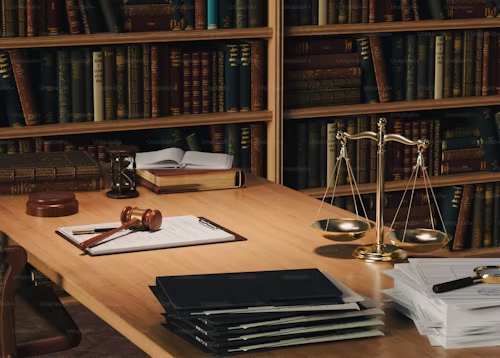The Evidence You Need to Win Your Personal Injury Suit
Navigating a personal injury suit can feel overwhelming, especially when considering the evidence required to win your case. Key pieces of evidence can significantly strengthen your claim, making it essential to gather them promptly. From medical records to eyewitness testimonies, each document plays a crucial role in building a compelling case. Consult with an experienced injury attorney to evaluate and organize this evidence effectively.
Witness statements, accident reports, and expert testimonies can establish the facts of the accident, provide crucial insights, and influence the outcome of your lawsuit. Photos from the scene and medical documentation depicting the extent of the injuries are often pivotal. These elements combined create a solid foundation to support your claims in court.
A detailed record of all damages, including medical expenses and lost income, quantifies the financial impact of the injury. This not only helps in negotiations but also aids in presenting a well-rounded case.
Understanding Personal Injury Law
An injury attorney plays a critical role in guiding clients through the complexities of legal procedures, ensuring that rightful compensation is pursued.
Defining Personal Injury
Personal injury refers to physical or mental harm caused by another party’s negligence or intentional actions. These cases can range from car accidents to medical malpractice and require proving the fault of the other party. Essential elements include duty of care, breach, causation, and damages.
Claimants must demonstrate how the defendant’s actions directly resulted in their injury. Accurate documentation and evidence gathering are crucial for the success of a case, as is understanding the statute of limitations which varies by jurisdiction.
Roles and Responsibilities of an Injury Attorney
An injury attorney is vital in navigating the legal system. They handle evaluations of claims, investigate facts, and gather necessary evidence. Their responsibilities extend to negotiating settlements with insurance companies, ensuring the client receives adequate compensation based on the extent of their injuries.
In cases that do not settle, attorneys represent their clients in court. They are also tasked with managing medical records, expert testimonies, and other documentation critical to a case. The attorney’s expertise can significantly impact the outcome and the compensation received by the claimant.
Building Your Case
Accurate documentation and compelling testimony are critical components to persuade the court and achieve a favorable outcome.
Documenting Evidence
Collecting and arranging evidence forms the bedrock of any personal injury case. Essential items include medical records, photographs of injuries, incident reports, and any relevant correspondence. Medical records document the extent of injuries and the treatment process, providing clear evidence of the impact on the injured party.
Photographs and incident reports offer a visual and factual outline of the events. Keeping a meticulous record of dates, times, and any communications with the involved parties or insurance companies is crucial. This ensures the clarity and credibility of the evidence presented.
Securing Witness Testimonies
Witness testimonies provide an unbiased account of the incident and are invaluable in substantiating claims. Identifying credible witnesses early in the process is essential. They should be interviewed promptly to capture the clearest recollection of events.
Written statements should be clear and concise. Formal affidavits or depositions may be necessary, depending on the complexity of the case. Witness credibility is enhanced by consistency across all accounts, which strengthens the case significantly. Ensuring the readiness of these testimonies for court appearances is a responsibility typically managed by legal counsel.
Expert Testimony and Analysis
Expert testimonies offer specialized insights that bolster the case by providing professional opinions linked to the injuries or accident circumstances. Experts might include medical professionals who can discuss prognosis and recovery or accident reconstructionists for detailed analysis.
Reports from these experts should align directly with the documented evidence. Their credentials and reputation can significantly impact the persuasiveness of their testimonies. Selecting the right expert is a strategic decision handled carefully by legal representatives to ensure their input aligns with the case objectives.
Katy Personal Injury Lawyers’ Approach
Katy Personal Injury Lawyers leverage their extensive expertise to carefully construct cases that maximize the chance of success. Their typical approach involves a thorough initial consultation to understand every facet of the incident, followed by an extensive evidence-gathering process.
They emphasize a strong narrative constructed from detailed documentation, leveraging both witness and expert testimonies. With an intent focus on client communication and transparency, they ensure that clients are comfortable and informed at each stage. Tailoring strategies to the specifics of each case allows them to adapt and respond effectively to any challenges that arise.







